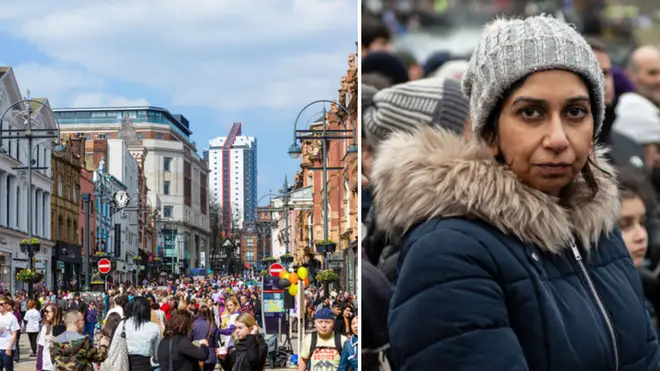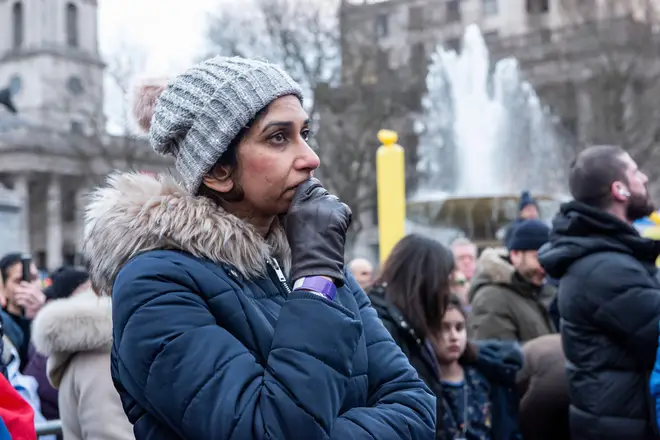
Shelagh Fogarty 1pm - 4pm
31 January 2024, 06:05 | Updated: 31 January 2024, 06:08

The population of the UK is set to grow by six million people by 2036, an increase of 10% in 15 years.
The population is set to grow from 67 million in 2021 to 73.7 million in 2036, according to official projections - the equivalent of adding six cities the size of Birmingham to the UK.
The vast majority of the increase will come from immigration, with around 540,000 coming from more people being expected to be born than die over the period.
The UK had net migration of 672,000 in 2023 and 745,000 in 2022 - figures the government itself called "unprecedented".
Senior Conservative backbenchers called for the government to crack down on immigration amid the latest ONS figures, warning that the pace of change was too fast.

Andrew Marr says the UK immigration issue 'is not going away any time soon.'
They also said there was no democratic mandate to increase arrivals from overseas, with a recent poll showing a majority of voters want lower immigration.
Home Secretary James Cleverly said he was working "with the utmost urgency" to bring legal migration figures down, announcing a range of measures that the government was taking to crack down on immigration, which will take effect within weeks.
But MPs on the right of the party called for ministers to go further by putting a cap on overall migration to help control arrivals.
Former Home Secretary Suella Braverman said: "These numbers are too high, placing pressure on schools, the NHS and housing.
“Recent government measures will help a bit but they’re very late.
"We need a cap on overall numbers so we can hold government to account and fix this."

Shelagh Fogarty and caller discuss migration
Robert Jenrick, the former immigration minister, said: "The pace of change is far too fast.
"The power to change this, and set us on course for far more sustainable numbers, is in the Government’s hands."
He added that ministers had no democratic consent for such high levels of immigration.
The ONS expects net migration levels to settle at around 315,000 per year from 2028, down from the 2022 peak, which was boosted by arrivals from Ukraine, as well as other refugees.
But the 315,000 figure is still significantly higher than the government target of 250,000.
It comes as the government announces a range of measures designed to restrict legal migration.
The first changes come into force on March 11, restricting foreign care workers bringing relatives with them to the UK and requiring care providers to register with the Care Quality Commission if they are sponsoring migrants.
From April 4, the minimum salary threshold for people coming to the UK on skilled worker visas will rise.

This will be followed by the hike in the minimum income requirement for family visas, which will be introduced in stages. The first increase, to £29,000, comes into effect from April 11 but is set to rise to £38,700 by early 2025, the Home Office said.
The move will also see changes to the Shortage Occupation List (SOL), used to identify jobs where migrant workers need to be hired to fill vacancies. It has a lower salary threshold, typically 20% less than the going rate for that job.
But from March 14, the discount will be scrapped and in early April the SOL will be abolished altogether and replaced by the new Immigration Salary List (ISL), acting on recommendations made by the Migration Advisory Committee (MAC).
The body will initially advise the government on which occupations should be temporarily added to the ISL.
Meanwhile, the Immigration Health Surcharge, which some foreign nationals in the UK on certain temporary immigration visas are required to pay to access the NHS, will rise by 66% to £1,035 from February 6.